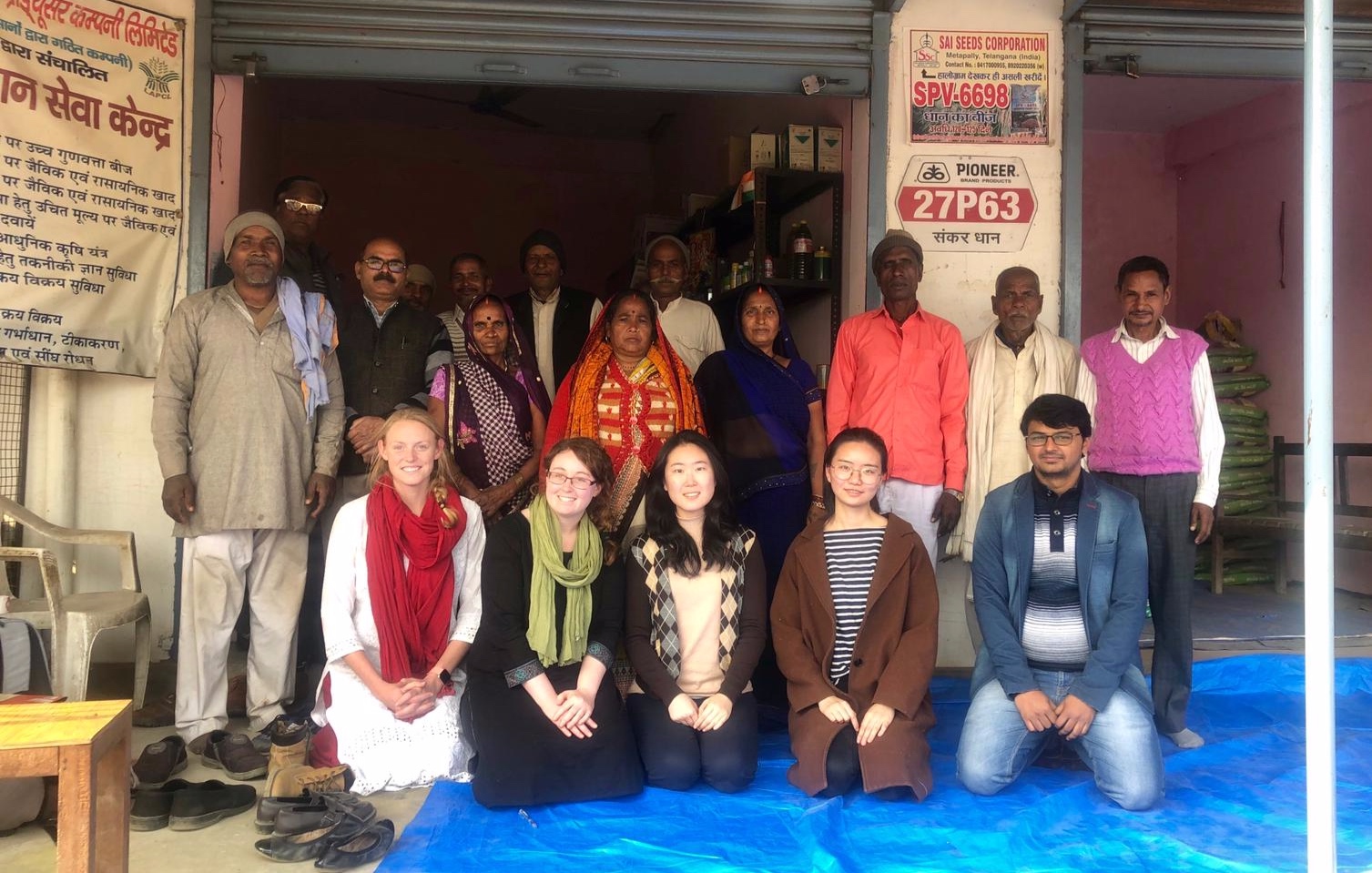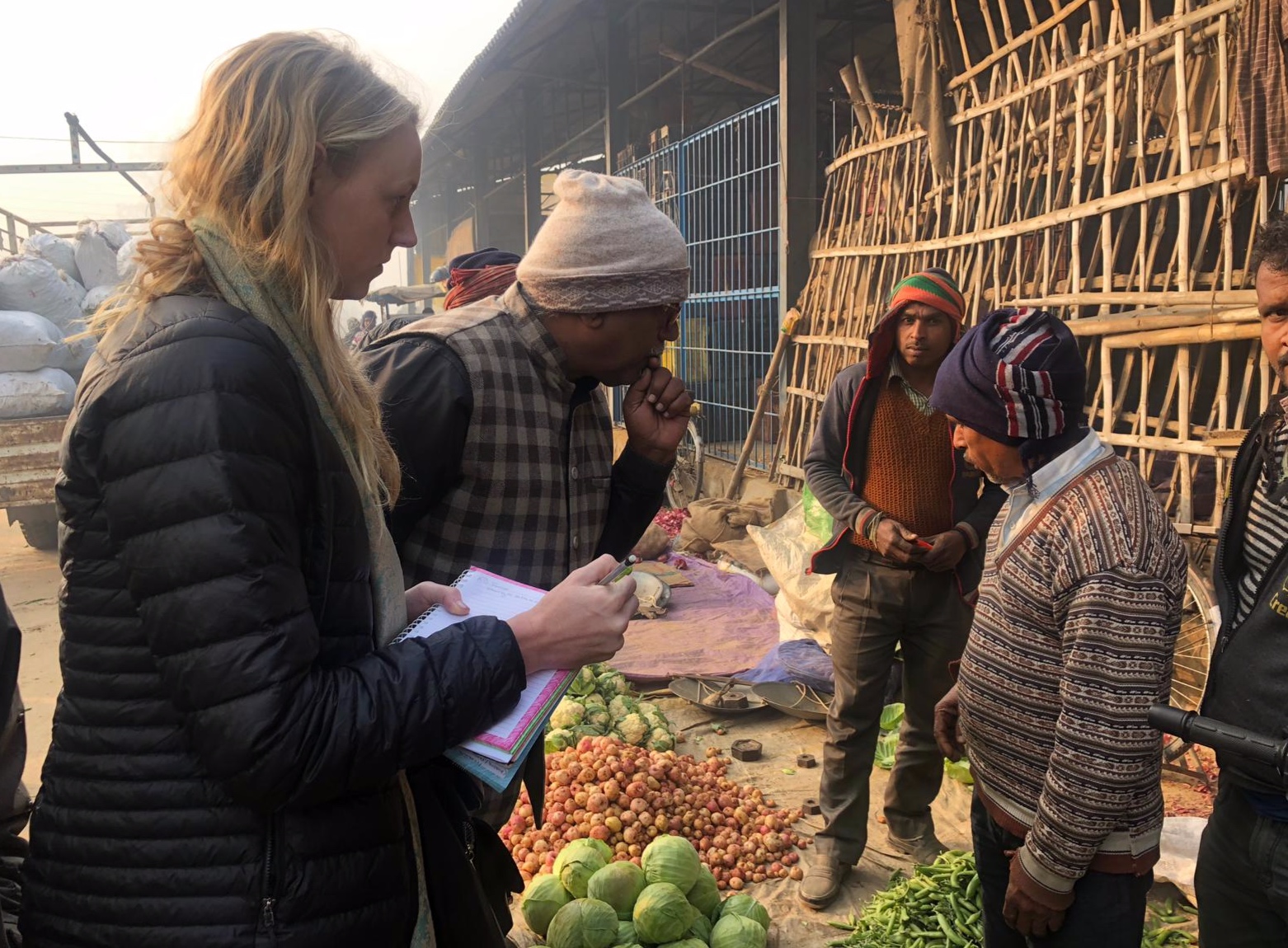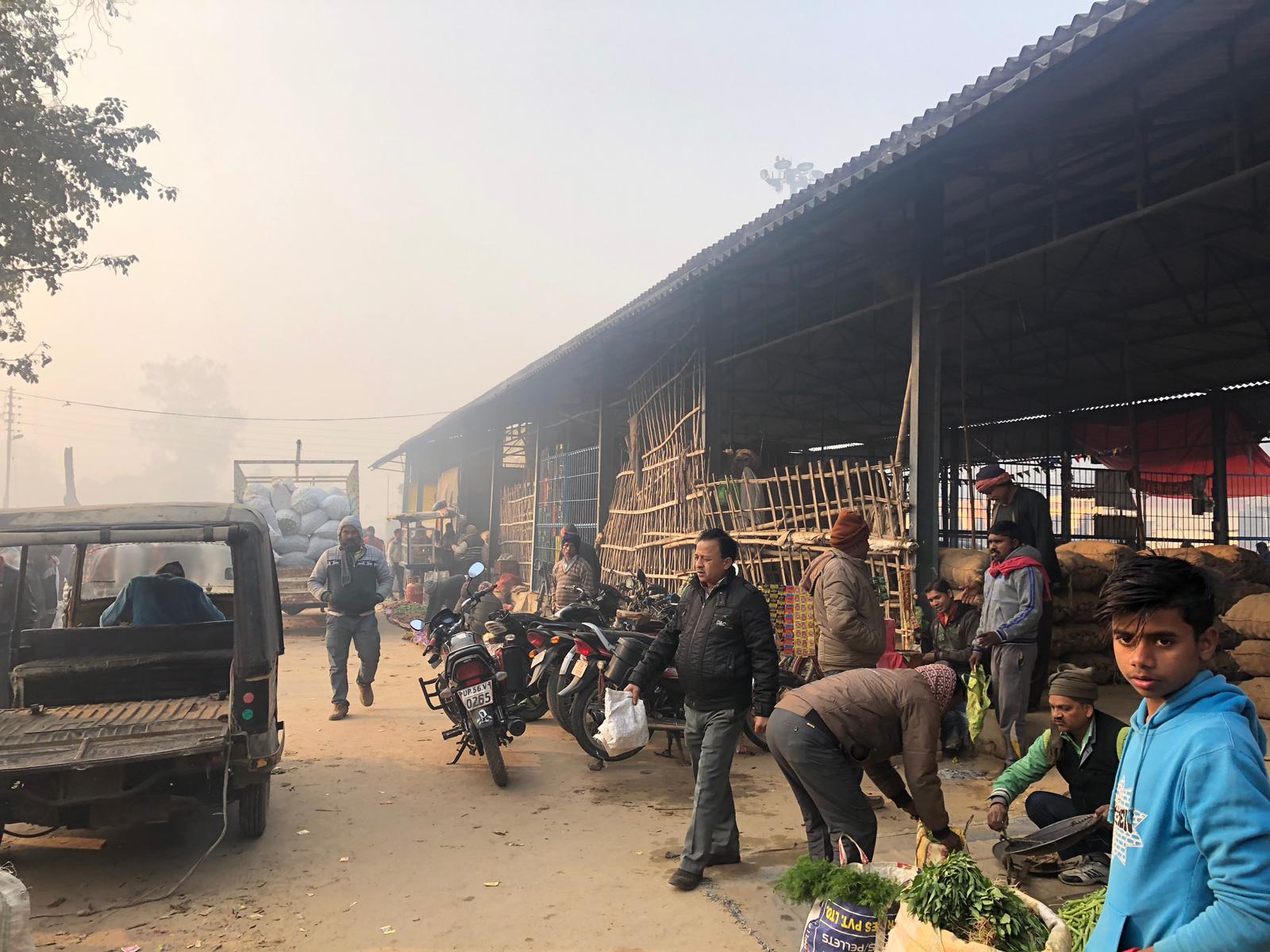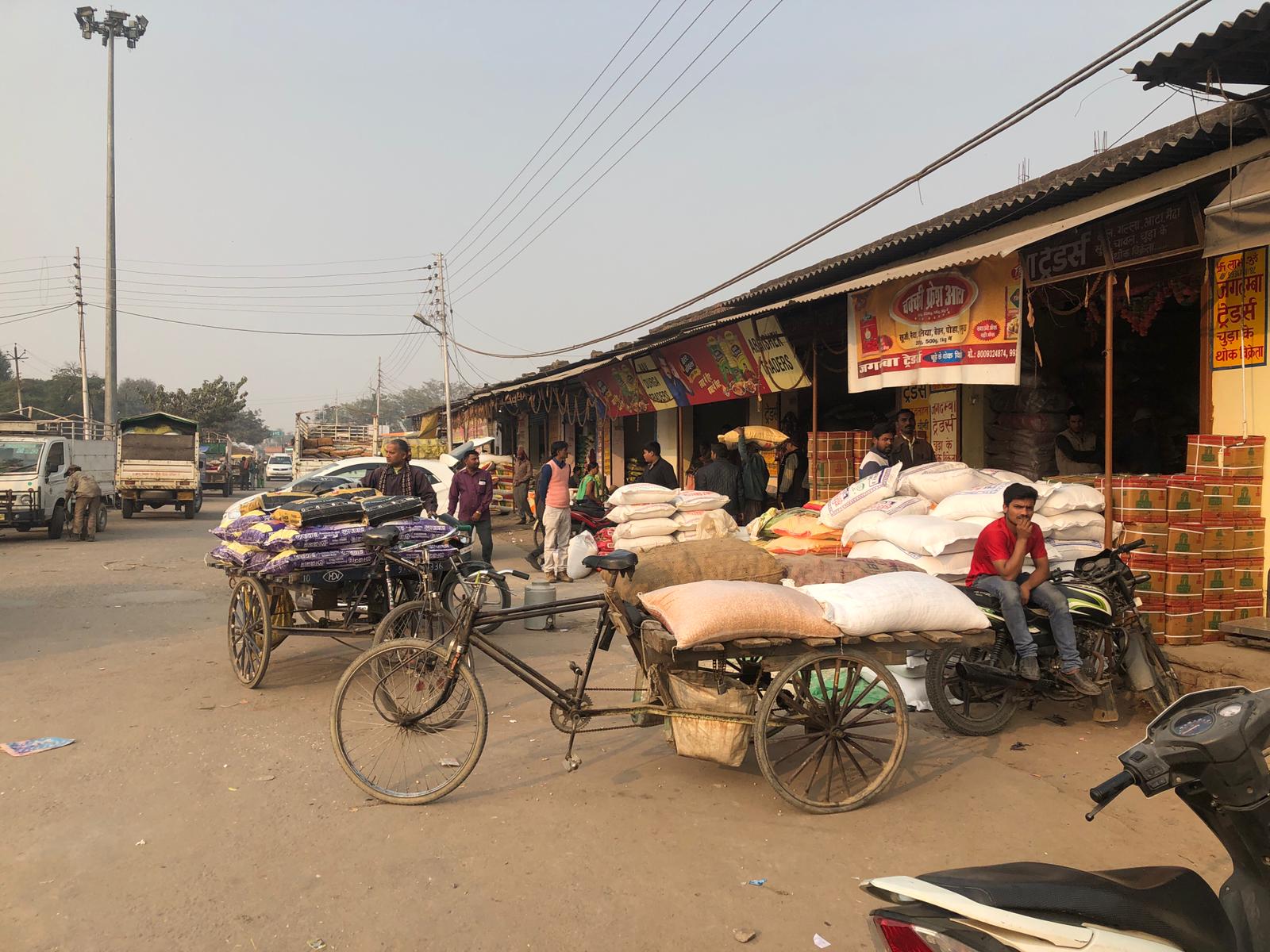BY CHLOE HAUENSTEIN, JAMIE LEE, MAYA GAINER AND YADIAN CHEN
Chloe Hauenstein, Jamie Lee, Maya Gainer and Yadian Chen are second-year International Development students who traveled to New Delhi and Uttar Pradesh, India, to research strategies to improve the incomes of small farmers in Uttar Pradesh. The team is working with Athena Infonomics, a consultancy firm based in Chennai.
The IDEV Practicum allows students to work directly with public, private and non-governmental organizations as a capstone to their graduate studies. The IDEV Practicum Blog is a six-part series that chronicles the travels of IDEV students who take on client projects over winter break.
“I work on my farm 24 hours a day,” one of the members of our first focus group in Uttar Pradesh told us. The man may have been exaggerating, but his point was clear: all of the farmers seated with us on the blue tarp at the center of the village worked long, hard hours for little reward. The goal of our IDEV Practicum team’s field research was to understand why and to find a way to make their hard work more worthwhile.
For many small farmers in eastern Uttar Pradesh, India, agriculture provides just enough food to get by, plus small amounts of cash income. In the villages we visited, the average landholding was only half an acre, often fragmented across several tiny plots. These smallholder farmers can only produce a small marketable surplus, and most of them sell to local middlemen who capture most of the value of the products and offer farmers extremely low prices. Our client, Athena Infonomics, has been conducting research on barriers to raising the incomes of small farmers in eastern Uttar Pradesh. We were tasked with visiting Maharajganj District to corroborate their findings and explore a possible solution: marketing crops through a farmer producer organization.
Athena connected us with Grameen Development Services (GDS), a Lucknow-based NGO with two decades of experience working with farmers in Maharajganj. Among their many activities to enhance farmers’ livelihoods, GDS worked with a group of local farmers to establish a farmer producer organization called the Lehra Agro Producer Company Ltd., or LAPCL. The organization began informally in 2003 with a group of farmers who decided to work together to improve access to high-quality seeds, pesticides, and fertilizers at reasonable prices. The farmers sought administrative and operational support from GDS, and with the NGO’s help, LAPCL officially registered as a company in 2010. It currently has a strong input business, selling products it buys wholesale and seeds it produces with the help of a network of farmers who serve as village-level distributors.
However, as we heard from one LAPCL staff member, improving market access and obtaining higher prices is crucial. With the help of agricultural extension services from GDS and quality inputs from LAPCL, farmers in the area are producing more and better crops—but these efforts will make little difference if they have no choice but to sell their produce to local middlemen for a pittance. LAPCL is eager to aggregate the small surplus each farmer produces and sell it collectively to a food processor or other large buyer, allowing the farmers to skip the middlemen and receive higher prices.
After speaking to farmers, members of savings and credit self-help groups, input and grain dealers, market commissioners, bankers, and agriculture experts in Delhi, we were convinced that collective marketing is essential. However, it will be challenging. LAPCL will need to identify buyers, conduct market research, and communicate buyers’ needs to the farmers, so that the crops they produce align with demand. It will need substantial working capital to pay farmers for their crops on time, even if payment arrives from the buyers later. It will also need to invest in physical infrastructure so that it can grade, store and transport produce, and eventually process crops to add value.
Making the investments necessary to engage in collective marketing will require access to credit, which has proved difficult for LAPCL so far. With the formal sector reluctant to lend, our team is exploring the possibility of partnering with self-help groups, which have been organizing rotating savings and lending among women in the district for more than a decade. Collaboration between LAPCL and the self-help groups may be able to meet some of the company’s capital needs and would give women who have developed strong business and leadership skills a greater voice in the company. As one woman emphatically told us, while men traditionally handle marketing, “if you take me to the market one or two times and teach me the skills, I’ll start marketing myself!”
Although collective marketing will be challenging, we returned to the U.S. confident that LAPCL can achieve its goal. The networks that both LAPCL and the self-help groups have established can easily provide a platform for aggregating produce and spreading information about demand. The self-help groups have the potential to provide capital that can jump-start the marketing business, and our team will be exploring other mechanisms to access credit as well.
Companies in other parts of India have successfully sourced agricultural products from smallholders through farmer producer organizations, and our research this semester will examine lessons those models offer for LAPCL. Most of all, however, we were convinced by the determination and resilience of the people we met. Over the coming semester, we look forward to developing a business strategy that can help make their vision a reality.
To read about the work that other IDEV Practicum teams did this year, visit this page.
PHOTO CREDITS: Chloe Hauenstein, Jamie Lee, Maya Gainer and Yadian Chen





